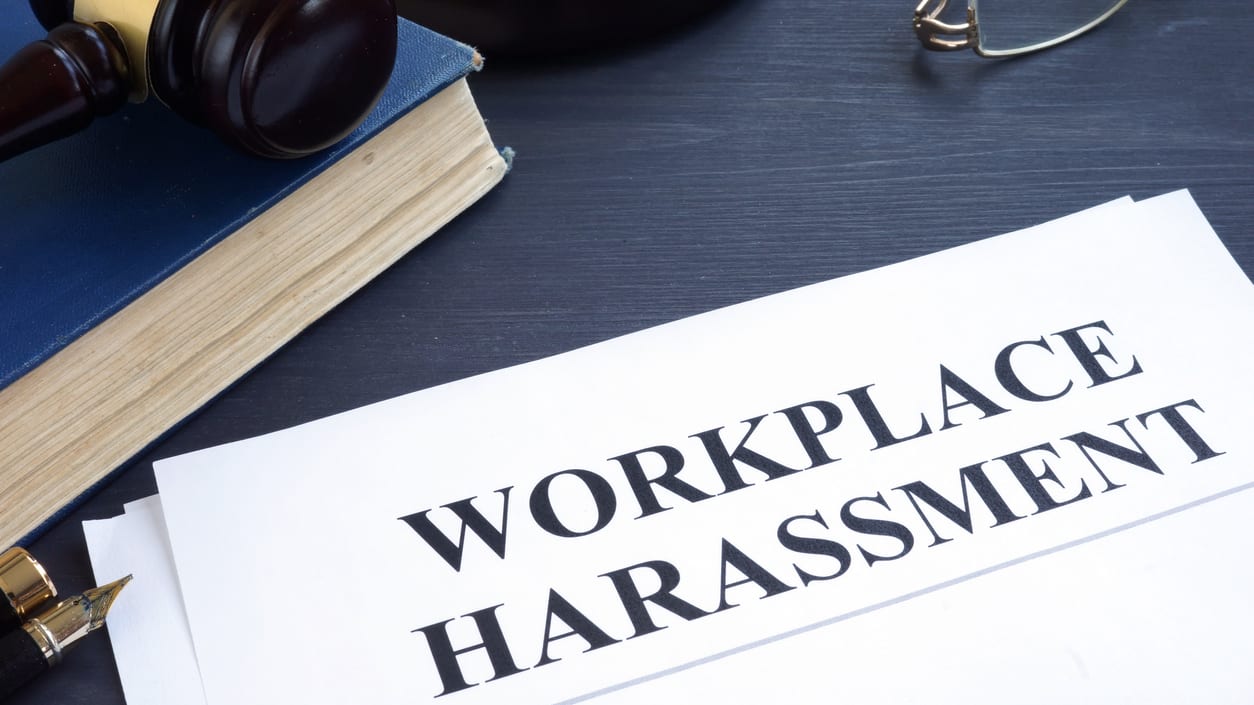Last week, President Joe Biden signed a bill into law that seeks to address the rise in hate crimes committed against Asian-Americans and Pacific Islanders (AAPIs) since the beginning of the COVID‑19 pandemic. While the legislation received bipartisan support in Congress and has encouraged activists, experts insist there is much more to be done to combat anti-AAPI discrimination—especially in the workplace.
COVID-19 Hate Crimes Act
Introduced by Rep. Grace Meng, D-N.Y., and Sen. Mazie Hirono, D-Hawaii, the COVID‑19 Hate Crimes Act mandates that the U.S. Department of Justice appoint an officer or employee to expedite the review of hate crimes related to COVID‑19. It also issues guidance for law enforcement to establish better online resources for reporting hate crimes and authorizes grants for state and local governments to improve their responses to hate crimes.
Vice President Kamala Harris, the first Asian-American to serve in that office, noted that the bill is not a panacea and much work remains left to do. "Here's the truth: Racism exists in America," she said. "Xenophobia exists in America, anti-Semitism, Islamophobia, homophobia, transphobia—it all exists. And so, the work to address injustice wherever it exists remains the work ahead."
Between March 19, 2020, and March 31, 2021, at least 6,600 incidents were reported to Stop AAPI Hate, a reporting center launched last year. The numbers appear to be increasing dramatically: In the first three months of 2021, more than 2,400 incidents were reported, compared with about 4,200 in 2020. The most common types of discrimination are verbal harassment (65.2 percent), shunning (18.1 percent) and physical assault (12.6 percent).
Civil rights violations, which include workplace discrimination, accounted for 10.3 percent of the incidents reported. The Stop AAPI Hate National Report provided accounts of these violations: a hospital in Carmel, Calif., where staff referred to COVID‑19 as the "China virus" and harassed Asian workers; a company in Santa Maria, Calif., where an employee was subjected to racist insults and death threats from co-workers; and a retailer in Cranston, R.I., where a supervisor took no action after an employee was repeatedly harassed by customers.
Addressing Hate in the Workplace
In a statement, Stop AAPI Hate applauded the COVID‑19 Hate Crimes Act. However, the organization noted that because the bill centers on hate crimes, it does not address other types of significant incidents. It urged the federal government to go further and take action that goes beyond law enforcement, such as strengthening civil rights laws that address discrimination.
According to Jared Pope, employment law specialist and founder of Work Shield, a company that works to resolve conflict in the workplace, businesses need to do more to address hate incidents and discrimination in the workplace. He described being disheartened that recent incidents targeting Asian-Americans—particularly the mass shooting that occurred in Atlanta in March 2021—did not spark the same kind of response from companies and the public that the 2020 murder of George Floyd did just over a year ago.
"I was taken aback by the nonsimilar reaction," he said.
But businesses have not been completely silent. After the Atlanta shooting, tech companies, banks and other organizations voiced their support for the AAPI community and condemned racism.
Companies have also been looking inward to improve the conversation. Tyece Wilkins, diversity, equity and inclusion manager for defense and aerospace company BAE Systems, noted that her company's AAPI employee resource group (ERG) recently hosted a conversation in response to the rise in violent incidents and has been looking at combining its efforts with other ERGs at the company.
"So, we haven't yet done any sort of large-scale initiative like we have done with racial equity, but I think there are a lot of synergies," she said. "The AAPI ERG is looking at how they can potentially team up with our other ERGs and look at some of these things through the same lens."
Addressing Toxicity
Pope believes that companies can do more to show their support for the AAPI community and to combat bigotry in the workplace by following a three-step process:
- Make sure employees' voices are heard. Employers need to give employees a platform so they feel empowered to speak out whenever an incident occurs.
- Listen intently. Every time employees speak out, the organization's leadership should hear them. Take their statements seriously and try to understand what they're feeling.
- Ensure a clear path to resolution. Once leaders understand where employees are coming from, they should act, treating each issue seriously and with respect.
The key to resolving bigotry in the workplace is addressing toxicity, which Pope views as the primary reason why so many diversity, equity and inclusion (DE&I) efforts fail to succeed. He noted that many companies try to improve DE&I by hiring more diverse talent or committing to public-service efforts. He argues that instead, they should be rooting out toxicity.
Toxicity persists in so many organizations because employees are fearful of speaking out. Pope believes businesses need to do a better job of conveying to their employees that they won't be retaliated against if they report toxic behavior. If employers turn a blind eye, he believes it will ultimately come back to haunt them once word gets out.
"We need to understand that toxicity is the root of evil within workplace culture and that workplace culture is just a microcosm of what's going on in society," he said. "If you're a business leader and you want to keep your head in the sand, guess what: You're going to end up on the front page."
An organization run by AI is not a futuristic concept. Such technology is already a part of many workplaces and will continue to shape the labor market and HR. Here's how employers and employees can successfully manage generative AI and other AI-powered systems.




